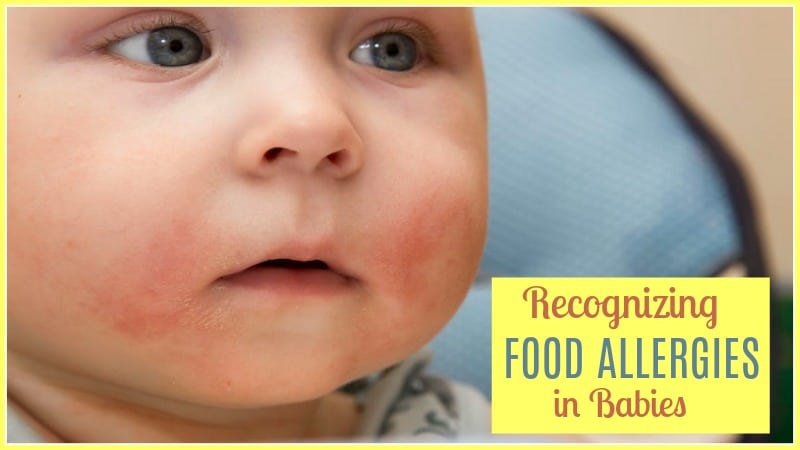
What is Allergy?
An allergy or intolerance is always accompanied by a strong immune reaction.
The baby’s body recognizes certain food or environmental components as foreign, and thus, harmful, and tries to fight against them with all possible means.
These substances are harmless when they get through the skin and mucous membranes of the baby to the internal body, their immune system reacts to them.
Causes of Allergy
There is a genetic predisposition, which increases the risk of allergies for babies and children if there is a family record of allergy to a certain substance(s), but babies and kids without corresponding family health records can also be affected.
The truth is, there’s no definite cause for an allergy in babies and children.
What is surprising, however, is that babies who’re often exposed to dust, pet dander, and household germs in the first year of life are less likely to suffer from allergies or asthma attack thaattacksrs.
Signs and Symptoms of Allergy
The common signs and symptoms of allergic reactions are redness, burning, and itching of the skin, wheels, swelling of the tissue.
The skin reactions can be treated with drugs, medicated soaps, and cream. For example, cooling gel, and in the case of an acute allergic reaction, antihistamines can be given.
Allergies and Intolerances in Babies
Allergies and intolerances in babies are not uncommon. The baby is exposed to a new environment and the body would have to react and adjust to it.
For a new baby, everything is a potential allergen – dust, molds, foods, pesticides, hair, pollen, and medicines are ommon allergens.
More babies suffer from intolerance and allergic diseases such as neurodermatitis, asthma, food intolerances, or hay fever.
Food Allergies and intolerances in Babies
Food allergies and intolerance iareoften common more than other allergenic agents.
Some babies develop intolerance to cow’s milk or dairy products such as formula milk and others.
Other common food intolerance are eggs, peanuts, fish, certain nuts, soy.
Products with high gluten protein and lactose are also responsible for severe allergic reactions in babies.
Signs of Food intolerance in Breastfed babies
Common signs of food intolerances in breastfeeding babies are skin rash, diarrhea, problems with breathing, swelling of the tongue, skin, or body tissues, and in severe cases, loss of consciousness.
Some children can also experience seasonal allergies – sometimes, it affects them, other times, there’s no reaction to some of these foods or other agents.
How to Prevent and Control Allergies in Babies
Nursing mothers are not happy seeing their babies sick or develop allergic reactions.
While it’s not usually serious or kills your babies, but there are still more serious severe cases of allergic reactions such as in atopic dermatitis and asthma.
Breast-fed babies are often less prone to allergies and intolerances so you should give colostrum to your baby in the first few weeks, and offering exclusive breastfeeding in the first 3 months is possible.
The best protection against allergies and intolerances in babies is good nutrition of the baby in the first year of life.
Healthpally experts advise exclusive breastfeeding for a baby for at least the first 6 months of life.
This is an important way of preventing allergies, as the baby comes into contact with small particles of the food that the mother eats through breast milk and can thus get used to them.
If breastfeeding does not work for whatever reason, it is advisable to give the child hypoallergenic baby food.
The milk protein in such food is well controlled and thus prevents an allergic reaction to it.
Hypoallergenic food can also be given in addition to breast milk and thus prevents proven food allergies.
Conclusion
When it comes to allergies and intolerances in babies, personal hygiene for babies and children is important, as much good nutrition and awareness of this issue.





